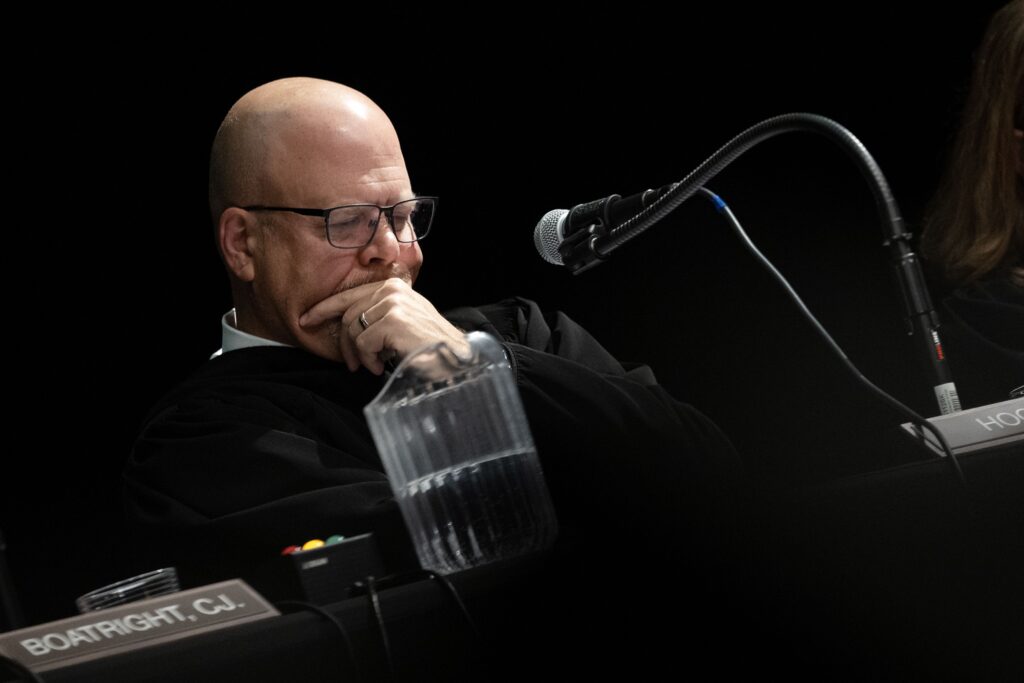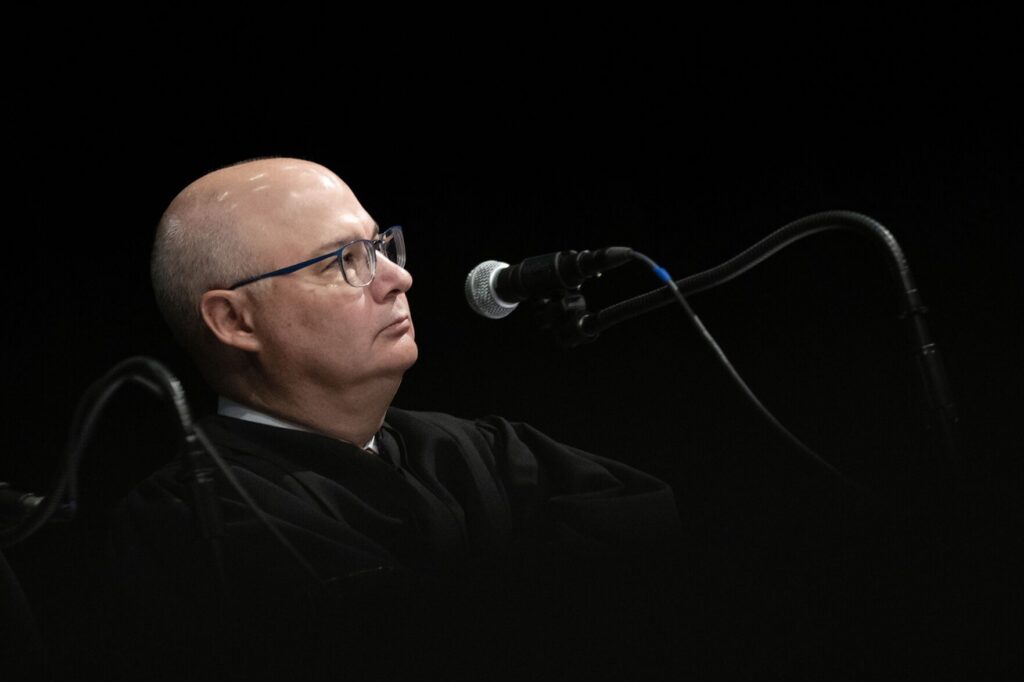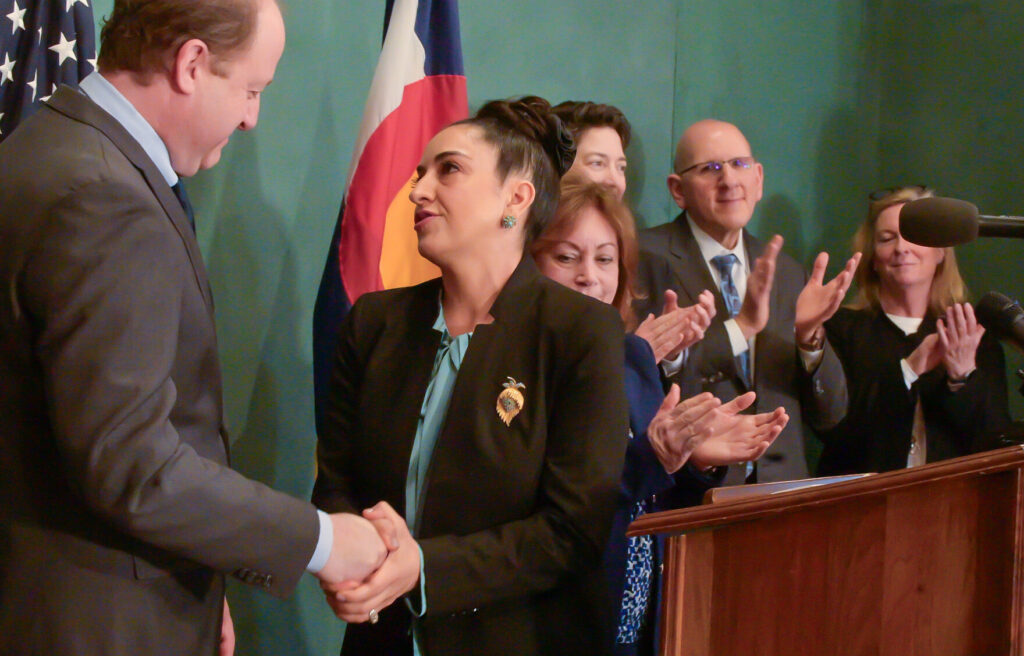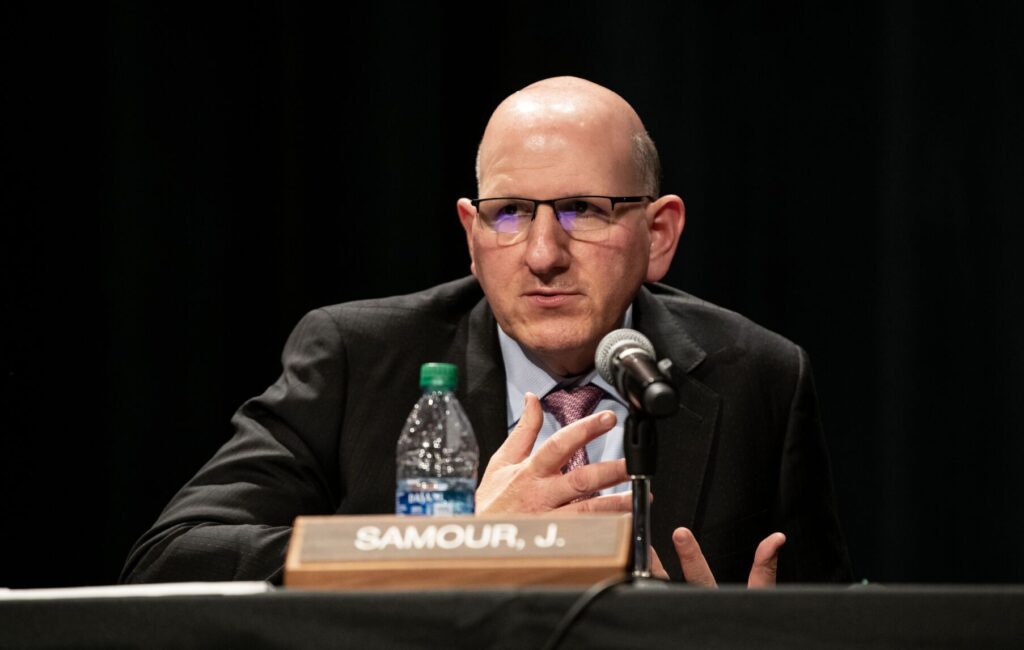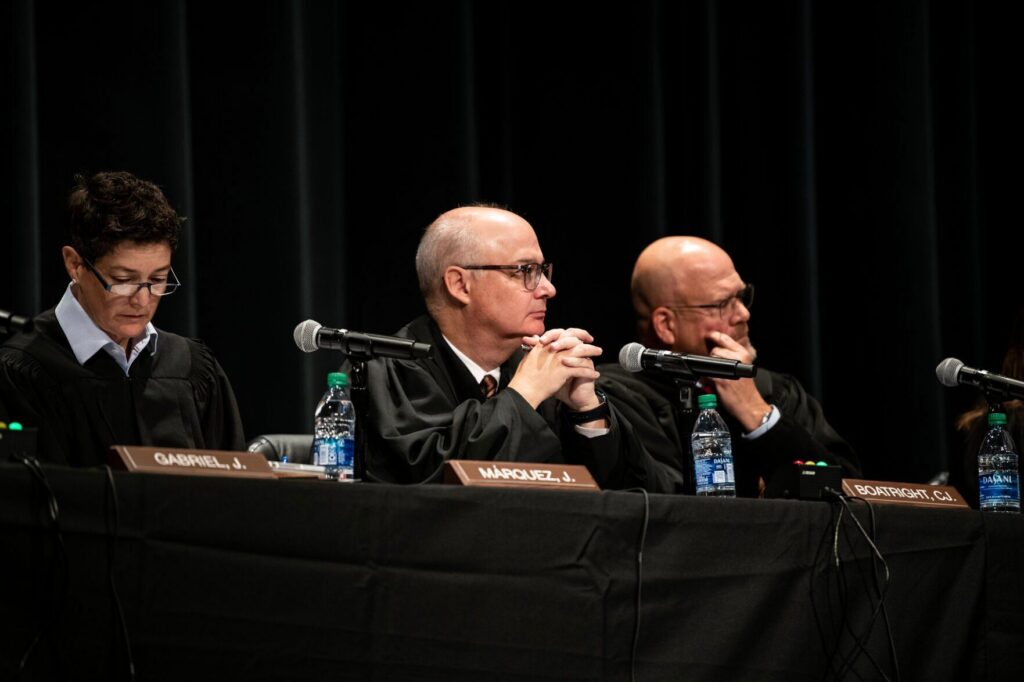‘Half-baked,’ ‘wild outlier’: Colorado justices mull jettisoning insurance documents appeal
After a trial judge took the rare step of admitting she used the wrong legal standard when ordering the disclosure of documents in an insurance dispute, the Colorado Supreme Court on Tuesday wondered whether it would be overstepping by issuing guidance in the appeal.
“This feels half-baked to me,” said Justice Carlos A. Samour Jr. during oral arguments. “It just feels like more work needs to be done before an appellate court can really intervene.”
The Supreme Court previously agreed to step in and address a trial judge’s order requiring an insurance company to disclose its attorneys’ communications with two engineering experts hired to evaluate a damage claim that subsequently turned into a lawsuit.
Lawyers for Hanover Insurance Company petitioned the Supreme Court by claiming there was a “growing privilege crisis” in Colorado of trial judges ordering the release of documents allegedly shielded by attorney-client privilege.
The Supreme Court’s docket somewhat corroborates the claim. This year, the justices issued one opinion overturning a Jefferson County judge’s disclosure order and also told a Denver judge to re-evaluate whether a range of privileged information was disclosable. Within the last month, the Supreme Court asked two more judges to justify their directives to release information allegedly shielded by physician or attorney confidentiality.
“You do assert that Colorado is somehow a wild outlier,” Justice Melissa Hart told Hanover’s attorney during arguments. “‘This is happening all over the state’ makes it sound like it’s not just some courts.”

Justice Melissa Hart listens during oral arguments at the Colorado Supreme Court’s “Courts in the Community” event on May 9, 2024 at Central High School in Pueblo. (Photo by Jerilee Bennett, The Gazette)
In the underlying case, Hill Hotel Owner, LLC constructed a 189-room hotel in Boulder, which opened this year. In 2022, damage occurred to the concrete garage floor at the construction site. Hill Hotel claimed rain was responsible, which its insurance policy covered. Hanover, meanwhile, believed the loss was not covered because construction workers’ negligence was to blame.
After Hanover denied coverage, Hill Hotel sued for breach of contract. In investigating the damage, Hanover had turned to a structural engineer, who believed contractor negligence was the issue. After Hill Hotel retained a law firm, Hanover hired another structural engineer, whose conclusions Hanover used to again deny the insurance claim.
In March, the parties notified Denver District Court Judge Jill D. Dorancy of a dispute over emails and other documents involving the two engineers. Hanover claimed they were shielded by attorney-client privilege, but Hill Hotel argued documents “generated by an insurer before its denial of coverage” were not protected because they were not prepared “in anticipation of litigation.”
Dorancy agreed and ordered Hanover to disclose communications the engineers made to Hanover’s lawyers.
On appeal to the Supreme Court, the parties and outside entities argued over when the communications of an insurance company’s counsel become privileged. Hill Hotel claimed an attorney who is “gathering factual information” is performing claims-processing activity that is not shielded from disclosure. Hanover countered with a four-part test gauging the legal nature of the communications.
However, the appeal took an unexpected turn when Dorancy filed her brief. She admitted the rationale she used in ordering disclosure — that the communications were not made “in anticipation of litigation” — was wrong.
“The District Court respectfully requests that this matter be remanded for it to apply the correct privilege test in the first instance,” wrote Assistant Solicitor General Talia Kraemer for Dorancy.

Notwithstanding Dorancy’s admission, Hanover asked the Supreme Court to stay the course and issue a decision on the appeal.
“There is disagreement about what the correct standard is,” said attorney Evan Stephenson.
“I agree, but usually in the first instance we have the benefit of the trial court or Court of Appeals taking a run at the correct standard,” responded Justice William W. Hood III. “Why shouldn’t we provide the district court the opportunity to do that here?”
“You’re sort of asking us to issue this anticipatory opinion laying it all out because the district court’s going to get it wrong,” echoed Justice Maria E. Berkenkotter.
Justice Richard L. Gabriel appeared open to sending the case back to Dorancy with some explanation of how to draw the line between an attorney’s involvement in investigating claims and the privileged work of providing legal advice.
“We’ve got briefing from the two sides that seem to both be taking fairly extreme positions,” he said.
The case is Hill Hotel Owner, LLC v. Hanover Insurance Company.


